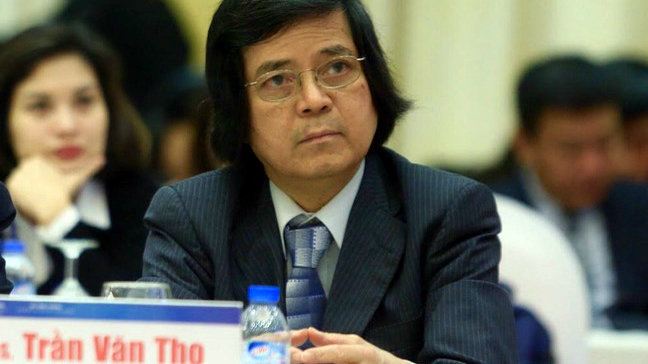Vietnam turns semiconductor vision into action
The global semiconductor industry is being reshaped by geopolitical tensions, shifting supply chains, and the surge of digital technologies.




For a country which is experiencing the early stage of development like Vietnam, nationalism will become a driving force for economic growth, according to Professor Tran Van Tho.

Nationalism of both entrepreneurs and officials should be raised up to fuel the economy in which domestic and foreign invested enterpises are supported fairly and equally. Prof. Tran Van Tho, member of the Prime Minister's Economic Advisory Group looked into this matter.
In a recent time, you noted foreign factors in the process of integration and equitisation, didn't you?
Integration is not simply opening wide while the competitiveness of domestic enterprises is still weak. We are heavily dependent on FDI (foreign direct investment) enterprises, which have generated a half of the industrial output and 70 per cent of export. Without taking foreign factors into account in equitisation, our economy may be even more dependent on foreign forces.
The equitisation of state-owned enterprises (SOEs) is necessary, but in the light of foreign factors, sometimes this process should be slowed down or supported so that domestic enterprises can actively participate. It is good to make use of external forces but first, we should develop an autonomous economy.
You also recommended that the domestic private sector should buy shares in SOEs. What did you mean?
By doing so, the majority of the shares will still belong to domestic enterprises. The fields which the State does not need to control should be privatised; it is just the change of sources.
With the population of nearly a hundred million people, if we still have to depend on foreign countries to develop, we may face instability and our national pride may hurt.
How do you feel about nationalism of Vietnamese business people in comparison with Japanese or South Korean counterparts?
Hard to say, but from what was on the press, I think our national spirit is weaker than one of Japan and Korea. Japanese companies such as Toyota, Sony, Panasonic, Canon, etc., all started with a very high national spirit.
They started a business to contribute to the development of their country, not to look after their own interests. Over the years, they have become rich, which has also benefited the whole society.
In Vietnam, it seems that many entrepreneurs do not start with patriotism. Hence, when they begin to succeed, they start to waste money or sell the brand – their brainchild – to some foreigners so that they can enjoy a blissful life without further effort. If they have a national spirit, they should develop a brand for Vietnam and create more products “Made by Vietnam”.
Besides, we should call for the national spirit of other members in the society, especially officials, who directly affect the operation of businesses. Officials must also have nationalism and patriotism, otherwise, businesses will be limited.
Many government agencies and local authorities tend to attract and offer numerous incentives for foreign companies while making it difficult for private ones. This also indicates their low national spirit, which easily discourages business.
Perhaps it is because the enterprise is not confident yet to expand the scale or there is still a lack of supporting policies, so they decide to sell the brand. What do you think?
Yes, and this kind of situation calls for favourable policies from the State so that they will feel at ease to invest and develop as well as nourish their national spirit.
National pride and spirit are crucial. For a country which is experiencing the early stage of development like Vietnam, nationalism will become a driving force for economic growth. I think, in countries like Vietnam, nationalism is an important element of entrepreneurship.
Currently, big private companies such as Vingroup, Vietjet Air, Thaco, Hoa Phat and Masan are expanding their business into many fields. What do you think?
They have risen to a new height compared to the vast majority of the private sector. The State should support them, as the growth of this sector will contribute significantly to the autonomy of our economy.
Thank you very much!
The global semiconductor industry is being reshaped by geopolitical tensions, shifting supply chains, and the surge of digital technologies.
The change in APA approval authority is expected to shorten processing time and enhance business proactiveness in international tax negotiations.
As hybrid cloud systems grow more complex, Vietnamese enterprises are struggling to detect cybersecurity threats moving laterally within their own networks.
The submission of the draft resolution on Vietnam’s international financial center to the National Assembly heralds a new developmental era for the country.
More than just running a 5-star resort, Kristian Petersen is redefining the art of hospitality with a humane and sustainable leadership philosophy.
For Tyna Huynh, co-founder of Drinkizz, organic is not just a food choice but a way of life that fosters a deep connection between people, nature and community.